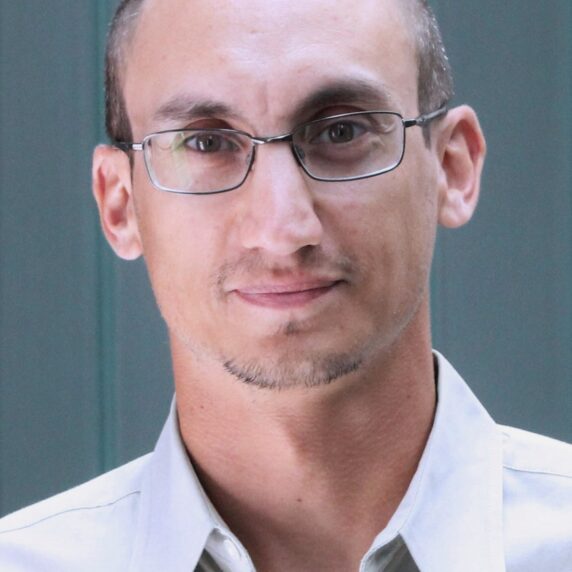2021
Tovi Grossman
With advance of AI, researcher helps people learn to work in new ways

2021
With advance of AI, researcher helps people learn to work in new ways

Tovi Grossman and his research team at the University of Toronto study Human Computer Interactions (HCI) – basically anything and everything about how humans use technology.
“It’s a field that used to be focused on desktop computer stuff, that was HCI originally,” says the computer scientist. But it’s evolved, now including “understanding how people will interact with all forms of existing and emerging technologies, and the impact they have on society”.
Dr. Grossman acknowledges what many of us have experienced: sometimes those interfaces aren’t designed very well and we find the technology complex to use. Today’s HCI looks at how to design human interfaces so they are more efficient, flexible, easier to use and easier to learn.
A 2021 winner of the Sloan Fellowship, Dr. Grossman’s research looks at the interfaces of new technologies. “In the early 2000s, when I was doing my PhD, I was looking at multi-touch interaction and freehand interaction, the touch points on a display. It was an unknown, emerging technology, but now that’s widespread.
“The work we do in our labs now is looking at new technologies perhaps on cusp on being released, from the standpoint of how will this impact the way we use technology.”
In particular, Dr. Grossman’s team is exploring how to help people learn new ways to work with technological tools.
“As that work developed, we came to the realization that automated technologies are becoming more common. Say I work in the architectural industry, for example. Some design work, because of AI, will become automated. Computers will do more of tasks that people would have normally done,” he says.
“AI is really going to disrupt the employment landscape. My feeling is it’s not going to take jobs away but change the nature of work people do…We are going to have to learn to do things in new ways.”
That also means finding the right balance between human work and machine work, he says. “We can’t have AI do everything for us and it probably can’t. But also, if we need to work in new ways, how do we help people learn to do that? It’s a lot about real-time learning. Can you make a user interface so friendly it almost walks you through that in real time?”
Dr. Grossman says funding from the Sloan fellowship will help him add research assistants to his lab, where he currently has seven PhD students, three masters and two post-docs.